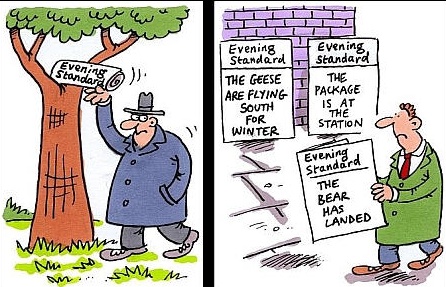Leonid Bershidsky writes: Russia’s financial crisis has seen the Russian equity market’s total capitalization plummet to $345.9 billion from $647.4 billion, as measured by the RTS index. That makes all the country’s public companies together worth about as much as Google, valued at $349.1 billion, and less than Apple, Microsoft, Exxon Mobil or Berkshire Hathaway. Russian billionaires have lost big chunks of their fortunes, and now, in some cases, the prestigious toys they have acquired abroad are said to be worth as much as the Russian industrial assets that made them rich.
This kind of analysis is largely meaningless, however: Markets are fickle, and wealth is too volatile to matter much to the ultra-rich themselves. It does, however, say something important about why the Russian billionaires are, for the most part, wedded to the country that nourished them: Actual cash flows to their assets in Russia are relatively high.

Russian billionaires are a diverse bunch. Some, like nickel czar Vladimir Potanin, retail magnate Sergei Galitsky and natural gas mogul Leonid Mikhelson, own no foreign assets to speak of. Others, such as the omnivorous Viktor Vekselberg and steel titan Alexei Mordashov, are heavily invested overseas. Dmitry Rybolovlev, the former owner of potash producers Uralkali and Silvinit, is an outlier: He has no significant industrial assets anywhere, and his real estate, yacht, art and jewelry constitute 20 percent of his net worth.
Those with the biggest Russian assets have been the biggest losers this year. Mikhail Prokhorov’s holding in the Brooklyn Nets basketball team is proving his most secure investment. Based on the numbers alone, the same could be said of Roman Abramovich’s Chelsea soccer club in the U.K.
That would be a misleading conclusion, however, because the sports teams’ valuations exist only on paper. So far, nobody is offering that kind of money to Prokhorov or Abramovich, and they would not necessarily be interested in such offers anyway.
The Nets lost $144 million last season, and even if their fortunes change radically this year, the free cash flow to Prokhorov’s stake can be generously estimated at zero. Chelsea earned $29 million for the year to June 2014, but that counts as profit only for European soccer’s Financial Fair Play policy, which was written to make clubs more equal regardless of their owners’ resources.
Is it fair then to compare the expensive British and American toys with the gritty Russian factories, operating in harsh climates and employing hard-drinking, gloomy, need-toughened men rather than glamorous athletes?
Across the board, Russian billionaires receive more free cash flow to their Russian assets than to their foreign ones, relative to these assets’ valuations:

While the billionaires could theoretically cash out, as Rybolovlev did, and invest in hedge funds or other vehicles, they are more likely to sell their foreign assets than their Russian ones. Even at the ruble’s current exchange rate, the latter continue to bring in more money than overseas holdings do. Also, Western assets are comparatively overvalued.
Even though Russian billionaires are part of the international jet set, with homes throughout the world and yachts and planes that can take them anywhere at any moment, they are invested in Russia’s fate. Vladimir Evtushenkov, was released from house arrest after the government made him give up his oil assets, claiming they had been illegally privatized.

